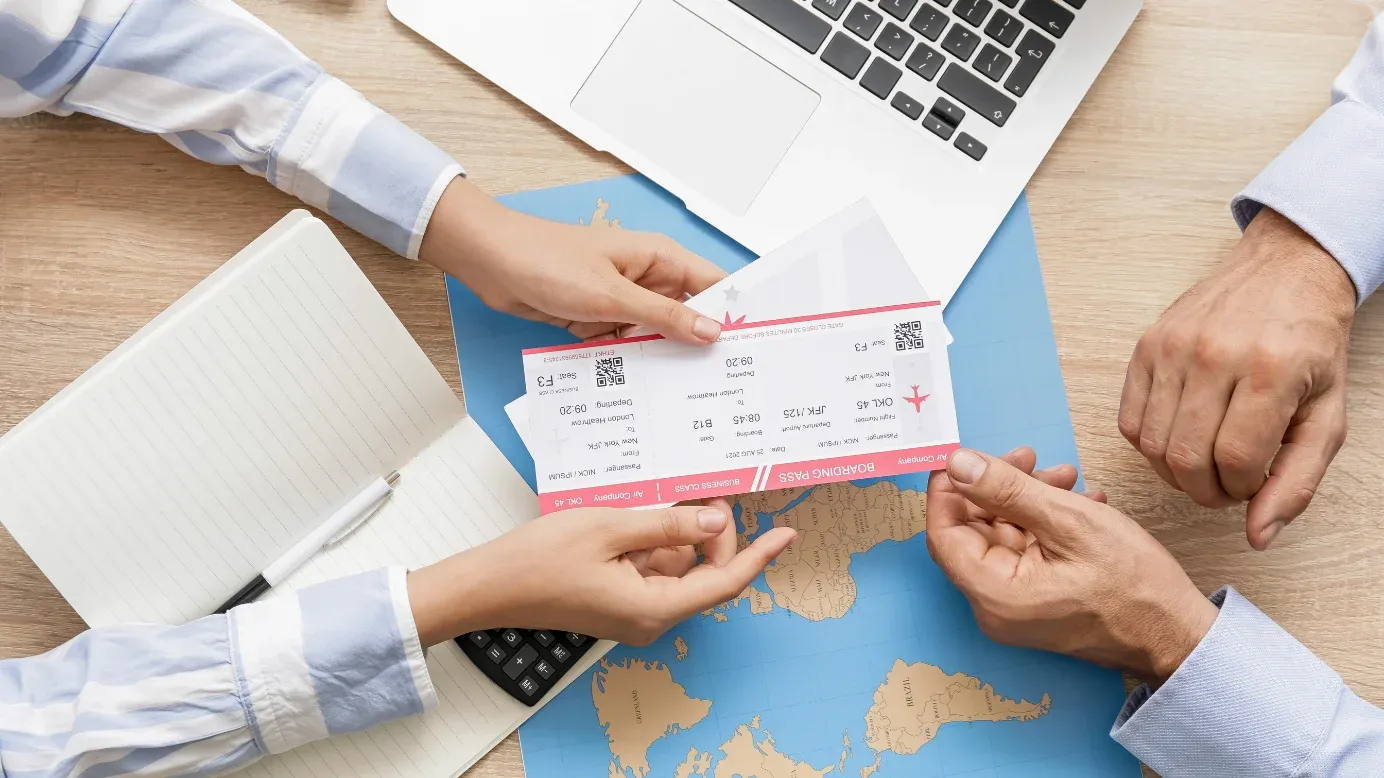Table of Contents
Travel agent commission percentage refers to the total package cost that a travel agent receives as compensation for facilitating and organizing travel arrangements for their clients.
Accounting for travel agent commission is crucial for any travel agency, as it determines the complete financial picture and holds a significant role in the world of travel planning and reservations.
The typical travel agent commission in the USA ranges from 10 to 20 percent of the package cost, depending on the agency's size and influence and the operator's location.
Travel agency owners need to understand these commission rates, as they have an immediate impact on pricing strategies, profit and gross margins, client preferences, and the long-term viability of travel agencies.
This article will cover every aspect of travel agent commission percentages in the USA, shedding light on their calculations and how they affect the travel business environment.
Understand how travel agent commission works
To know the foundation of travel agent commissions and how they are distributed, it is essential to understand how these payments function. The accreditation number, a unique identification number, is the fundamental component of this method. This is how travel agents are paid on commission.
Let’s go through the process:
- When a travel agent partners with a supplier to book travel services, the supplier demands the travel agency's accreditation number in their booking procedure.
- This number is a vital connecting factor that enables the supplier to identify the right agent for the commission to be paid.
- The processes that occur in the context of the host agency are a little different. All travel agents in a host agency's network are included under one central accreditation number for operations.
- The distribution of commissions to all independent agents affiliated with the host agency is streamlined.
- On the other hand, any agency within partnerships and some franchises has a special accreditation number.
- This distinctive identity ensures the exact allocation of commissions to the appropriate agency.
Understanding this method lets us see how the process is made transparent and organized by ensuring that the commission goes to the appropriate travel agent using the correct accreditation number.
4 Factors affecting travel agent commission percentage
The proportion of commission that a travel agent earns might change depending on several critical factors in the travel sector. Understanding these elements is essential in determining how commission rates are set and how they affect travel brokers' profits.
The following are some key factors that influence the commission percentages for travel agents:
1. Type of travel service
The commission rates for various travel services, including flights, hotels, and cruises, may vary. Depending on their profitability or level of demand, some services may have larger commission percentages.
2. Travel supplier agreements
Commission rates are heavily influenced by the terms of any agreements that have been signed between suppliers and travel agents. The particular commission rates that the travel agent will receive when selling the supplier's services are specified in these agreements.
3. Sales volume and performance
The volume of business a travel agent brings in, which is usually measured by their performance and sales volume, might affect the commission percentages. Agents with a bigger number of sales may bargain with suppliers for higher rates for commissions.
4. Location and market dynamics
The geographical location of the travel agent and the local market conditions may impact the commission rates. Depending on the level of market competition and cost of living, different locations may have different commission structures.
2 Types: Travel agent commissions
There are primarily two types of travel agent commissions:
1. Flat commission rates
Flat commission rates follow a simple, standardized framework of operation. Irrespective of the complexity and costs involved in travel arrangements, travel agents are paid a set percentage of the overall booking amount.
This method offers consistency and convenience to both travel agencies and agents. For instance, a travel agent who sells a $1,000 holiday package will get $100 in compensation if the flat commission rate is kept at 10%.
Financial strategy, budgeting, and accounting for travel agent commission benefit from this standardization because it simplifies the travel agency's computation and distribution of commissions without requiring multifaceted computations.
2. Tired commission rates
To recognise outstanding achievement and provide travel agents with incentives, tiered commission rates provide a more dynamic framework. Under this strategy, agents are paid different commission rates according to predetermined standards, like reaching sales goals, volume of sales, or other performance indicators.
A travel firm creates several tiers with escalating commission charges. Agents move to higher levels and become eligible for increased compensation rates as they meet sales targets.
Here is an example of how it works:
- Agents begin at the first tier, receiving an 8% commission on bookings between $0 and $24,999.
- After accomplishing a sales volume of $ 25,000, agents proceed to the second tier and start earning a 10% commission on bookings between $25,000 and $99,999.
- Moving up a level, agents who reach a sales volume of $100,000 are rewarded with a 12% commission on bookings between $100,000 and $249,999.
- When an agent's sales reach $250,000, they advance to the fourth tier and are eligible for a 15% premium reward on bookings over $250,000.
Although tiered commission rates encourage a goal-oriented and competitive atmosphere, accurate planning and control are necessary to guarantee equity and openness.
In the end, though, the travel agency's objectives and organizational design will determine whether to use flat or tiered commission rates.
Commission structures of companies in travel industry
Here are 2 commission structure of companies in travel industry,
1. Expedia
One of the world's top full-service online travel companies, Expedia makes it simple for travelers to plan and organize trips from the most extensive range of vacation packages, flights, hotels, rental cars, rail, and cruises.
- They have a travel agent affiliate program where they offer tiered commission rates to the agent.
- To allow agents to earn more money, their earnings are calculated based on the total booking value, including taxes.
- As agents create more reservations, they move up on commission tiers and see an increase in revenue per booking.
- They give 6.0% commission on packages, 7.5% on vehicle rentals, and up to 11.5% commission on hotels and activities.
2. Booking.com
Booking.com is another large travel marketplace that provides properties worldwide and access to various transportation choices and amazing lodging alternatives, including homes, hotels, and much more.
- Booking.com offers a flat commission-based model for its travel agents, meaning they pay a predetermined percentage of each reservation that agents make using their website.
- The commission percentage varies by nation and may also change based on the kind or location of the property.
- Depending on the property and its location commission rate ranges from 10% to 25%. On an average, it is 15% fixed.
In a nutshell
The travel agent commission percentage and its structure have a significant impact on how the business is shaped.
The secret is to create commission arrangements that support the objectives of agencies and agents equally so that there is a smooth path to success in the dynamic travel industry.
A well-designed commission structure is a compass that guides agents in navigating the vast waters of the travel industry, regardless of how appealing tiers or the simplicity of a flat rate.





